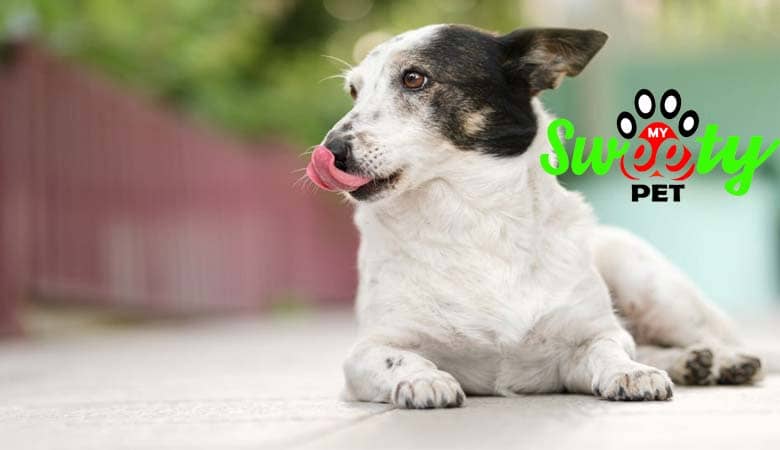As your dog ages and becomes slower, you need to worry about how much weight it has gained. It could be that the dog used to chow down with great enthusiasm and now doesn’t like the food much. With age, the pets’ dietary needs and eating habits start to change. In this article, we will discuss about the senior dog food and its relevance for an aging dog.
Which age suggests that your dog is old?
According to most vets, it completely depends on the body weight and the breed. The giant and the large breeds can age much faster in comparison to the small dogs. There is a chance for overweight dogs to age much faster in contrast to the lean dogs.
Going by the rule, the dogs usually get considered older the moment they have reached the half-life expectancy that they come with. The small dogs typically tend to live for 15 and 20 years. On the other hand, the big dogs live for almost 12 and 15 years. The big dogs are called old when they reach around six years. On the other hand, the small dogs get old around nine or eight.
Do the senior dogs come with special nutritional requirements?
Usually, the senior dogs will require reduced calorie diets so that they don’t become obese. It is a big issue with the big dogs. That aside, high-fiber diets usually enhance gastrointestinal health. Ideally, the crucial aspect for the geriatric dog is the low energy need. As the metabolic rate slows, old dogs tend to get obese or overweight. Several dog food organizations provide the best senior dog good combinations and formulations, which is the correct diet for aging dogs as it has less calories.
It is necessary for the owners to feed the pets with food that matches their life stage. However, some owners with two or more dogs might want to purchase just one kind of dog food. Here the foods would get called as the “multi-stage” and will get acceptable for the puppies and old dogs. There is a scope for compromise when it comes to the multi-stage diets. There are people who can’t separate these foods. Chances are that a puppy will eat the old dog food, and an old dog will have puppy food.
When it is about snacks, you need to provide the senior dog with low-fat, healthy food, such as low-sodium treats. Even though several dog owners will mostly think about milk biscuits and bones, there are multiple choices. Some vets consider the benefits of vegetables. Dogs usually like apple and carrot slices. You need to subtract raisins and grapes as they harm the dogs.
With age, your dog might require more water. Also, the body’s capacity to retain the water balance gets minimized as they get old. It is necessary to ensure that the senior dogs possess ample water to stay hydrated. It also ensures the flushing out of toxins.
What are the health issues that can impact the diet of an old dog?
When the dog has medical issues in the later years, you might need the help from a veterinary nutritionist for planning a correct diet. The older pets have specific conditions, such as liver ailments, kidney failure, and diabetes, that can need a specialized veterinary diet for helping treating other conditions. The dogs that have heart ailments will need less calories to maintain the weight.
The expert vet suggests that the objective of the diabetic diet is the correct absorption of everyday food. When the foods get absorbed slowly, there is a scope for blood sugar to increase. The high-fiber, low-fat foods are great for diabetic dogs. You need to consult the vet concerning the food type that you purchase. The old dogs might have to witness constipation with age; hence a high-fiber diet is good for them. Several senior diets come with high-end protein sources instead of the standard foods. It helps to retain the dogs’ muscle mass and body weight without placing excess strain on their kidneys.
Senior dogs and supplementation
There are several dogs who struggle with joint pain and arthritis. And when you address this issue, several senior dog foods will have chondroitin sulfate and glucosamine that help their joints. When you give the dogs these supplements, it is essential to resort to veterinary formulations instead of human ones. All the supplements might benefit dogs with joint issues, but the ideal solution here is weight management. That will lead to more health benefits than anything else. ‘
What must you do when your old dog doesn’t eat?
It is highly common for old dogs to have a depleted appetite. At times, they might not want to eat the way they used to, and the reasons for this vary from one dog to the other. For instance, dogs who have gastrointestinal issues will bring on nausea, and others can lose on their appetite because they have cancer. Dog owners don’t get to realize this at the first instance. A medical intervention can throw light on this.
Hence, when you find that your dog is not eating, you need to make a vet visit. Here the vet can rule out the underlying health issues, like cancer, dental disease, kidney ailments, and diabetes. There is a chance for dogs to lose out on the interest for dry food. In such a situation, you can add warm water, a small portion of canned food, and even chicken broth which can make the food attractive to your dog.
Last but not least, home-cooked food can also be attractive for your dog. The added smell and the tender love and care you add to the food is exactly what your old dog might need. Some owners use food combinations to feed their dogs, like barley and cooked chicken or rice and cooked lamb. At the end, assess the health of your dog and check with a vet as and when you think you need to.

